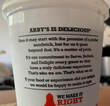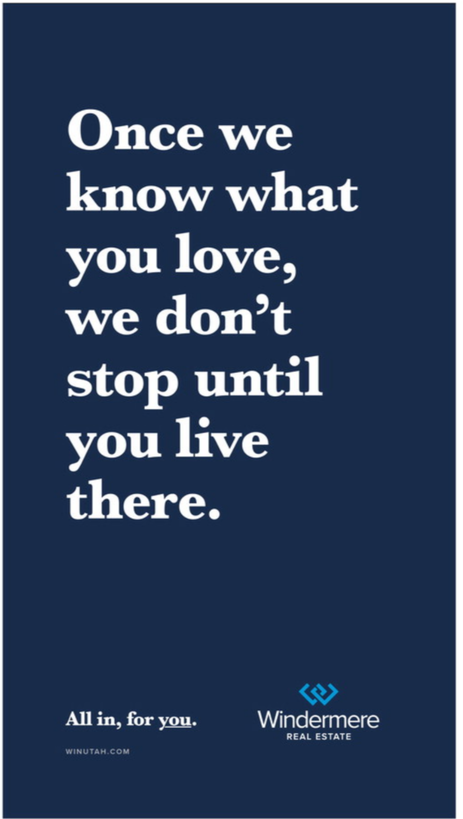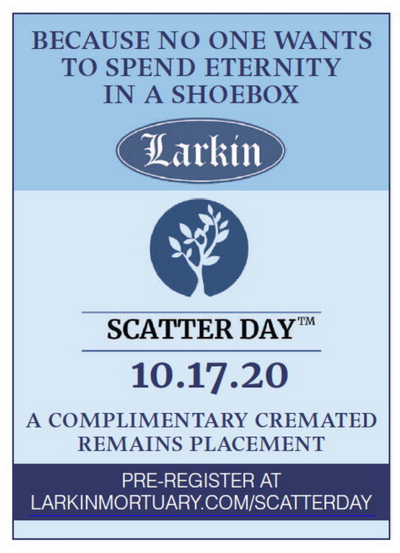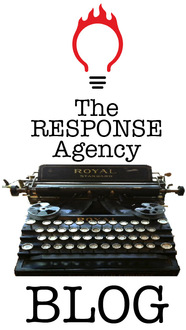Oh boy! Free stale coffee!
0 Comments
School of Marketing Journal:
|
I really wish Bernbach hadn’t said that It takes some gall to challenge Bill Bernbach, advertising icon and symbol of the “creative revolution of the 60s.” But then, gall might as well be my middle name, so here goes. Bernbach famously said: |
“There are a lot of great technicians in advertising. And unfortunately, they talk the best game. They know all the rules. They can tell you that showing people in an ad will get you greater readership. They can tell you that a sentence should be this short or that long. They can give you fact after fact after fact. They are the scientists of advertising. But there’s one little rub. Advertising is fundamentally persuasion, and persuasion happens to be not a science, but an art.”
I kinda wish he hadn’t said that.
To dichotomize science (“rules”) and art is just plain wrong. You don’t get one without the other, because one follows from the other. If you’re going to compose a sonata, you would be wise to begin by studying sonata form. If you’re going to prepare fugu, I cannot emphasize enough the importance of first leaning to identify and remove the toxic organs. If you’re going to build a beautiful bridge, I sure as hell hope you know a thing or two about civil engineering.
And, sorry, Bill, but persuasion is very much a science. The art is in applying it, not ignoring it.
Self-proclaimed creative types invoke Bernbach to defend irresponsible work. If you value art over and to the exclusion of the science of persuasion, you should stop pretending to be an advertising pro and hit up the National Endowment for the Arts for a grant instead.
A succinct definition of marketing
Having something to sell, that’s not marketing.
Having something that people want to buy, that’s marketing.
This ad fails the “Oh Come On” test
| If you cannot resist hyperbolizing* in your advertising, here’s a tip: at least avoid making an absurdly false claim. Today’s prime exhibit is Windmere Real Estate’s headline-only newspaper ad: “Once we know what you love, we don’t stop until you live there.” Really, Windmere? So, if I love a property that’s, say, one or two million bucks out of my price range—you won’t stop until you find me a way to buy it, right? Windmere, 20 years later: “Thanks for checking back. We’re still working on it. We’ll get back to you soon.” If I want to buy Steven Spielberg’s home, will you persuade Spielberg to move? What if I want to buy the White House? Getting that guy to move may be quite the undertaking. Come on, Windmere. If your objective is to establish that you jump through hoops on behalf of buyers, find a credible way to convince us. Hint: Don’t tell. Show. _______________ *I am trying to be generous. I could have said, “If you cannot resist lying in your advertising ...” |
Never argue with an arrogant twit
 “Listen, you arrogant twit ...”
“Listen, you arrogant twit ...” Alas, professionals. Some of them seem to think that expertise in one area gives them expertise in all.
I once prepared a campaign for a chain of mental health facilities. Like most poorly managed companies, this one wouldn’t run an ad unless every psychologist in the organization approved it. Tip: If you want unremarkable advertising, committee approval is the way to go.
Most of the psychologists I met with were great. One, however, informed me that my writing was wholly unprofessional. You can imagine my chagrin. At the time I had been writing ads for 15 years. I’d somehow gotten it into my head that I knew how to write ... that I knew how to write ... well, that I knew how to write professional copy.
“For instance,” he went on, “here the ad offers a ‘free’ initial consultation. Very unprofessional. ’Without charge.’ There. That’s professional.”
I knew better than to point out that “free” outperforms in the real world. He probably wouldn’t have believed me and, either way, wouldn’t have cared.
So, instead, I told him that his peers were fine with the wording.
Drawing a heavy sigh, he said, “If you want to know if the instrument is in tune, you should ask the musician who has perfect pitch.”
Here I resisted the urge to say, “Listen, you arrogant twit ...”
His CEO backed him up. She said, “I want effective advertising that doesn’t call attention to itself.”
Except for the “effective” part, that was exactly what they ended up with. Then the CEO complained that the advertising didn’t increase their business. “See?” she said. “Advertising doesn’t work.”
In time, I made it my policy not to work with clients who think they know more about advertising than I do. They indeed may, but if they do, then they should write their own ads or retain someone smarter than either of us. If they only think they know more? Here I shall defer to the late David Ogilvy: “Any fool can write a bad advertisement, but it takes a genius to keep his hands off a good one.”
Paid advertisement: “We don’t advertise”

I RECENTLY came across an online ad that said, “The reason our price is low is because we spend nothing on advertising.”
What an interesting claim to make--in a paid advertisement.
It reminds me of the time my mom, in the early stages of dementia, phoned me to ask for my phone number.
The notion that advertising raises prices, or that its lack diminishes them, is a myth.
Not once in the history of advertising has a CEO said, “We need to advertise, so let’s raise prices.” Neither has a CEO ever said, “We need to lower prices, so let’s quit advertising.”
When prospective clients request an advertising proposal, sometimes they choke on the budget. At that point, some re-allocate funds and some send me packing, but the one thing none of them does is draw a heavy sigh and say, “Guess we’ll have to raise prices.”
In the sense that all company revenues come from sales, sure, ultimately the consumer pays for advertising. But that wasn’t the question. The question was whether advertising raises prices.
Suppose, for the sake of argument, a company ceased advertising and passed the savings to customers. Know how much those savings would amount to? Maybe a penny or three per item. If that. McDonald’s has a huge advertising budget. But the per-item costs gets pretty danged small when you spread it over billions of sandwiches, billions of fries, billions of drinks, and on and on.
When advertising increases sales, which is, you know, kinda its job, it becomes a profit center, not an expense. Increased sales increase production, resulting in economies of scale and substantial savings for the company. The company may or may not pass on the savings to customers.
Pricing is determined by what people are willing to pay. What people are willing to pay is determined by their perception of value. You may have noticed, for instance, that a Mont Blanc pen costs somewhat more than a Bic pen. Trust me on this: the difference has nothing to do with their respective advertising budgets. If no one wants to pay enough for a product to cover the producer’s expenses plus yield a bit of profit, the product will disappear.
—Steve Cuno
Not the best time for dark humor
| To be clear, I am not offended by the ad pictured here. I am as given to dark humor as the next person. Perhaps even more so. Take, for instance, the time I was checking out care facilities for my now late mom. In hopes of getting a more realistic picture, I tended to show up late at night, when visitors were less likely to be expected. Pulling into one facility’s parking lot, I saw workers wheeling out a gurney with a body on it. “Well,” I said to my friend who had come along for the ride, “they have a vacancy.” But if you’re in the bereavement business, I recommend against humorous or would-be clever advertising of any sort. You don’t want to be overly schmaltzy, either. The best bet is to be straightforward. |
Archives
September 2023
August 2023
May 2023
February 2023
November 2022
July 2022
March 2022
February 2022
December 2021
November 2021
October 2021
September 2021
July 2021
June 2021
December 2020
November 2020
October 2020
September 2020
August 2020
May 2020
February 2020
November 2019
October 2019
August 2019
July 2019
June 2019
May 2019
March 2019
February 2019
January 2019
December 2018
October 2018
September 2018
July 2018
June 2018
May 2018
April 2018
March 2018
February 2018
December 2017
November 2017
October 2017
September 2017
August 2017
June 2017
February 2017
January 2017
December 2016
November 2016
October 2016
September 2016
August 2016
July 2016
June 2016
May 2016
April 2016
March 2016
February 2016
January 2016
December 2015
November 2015
October 2015
September 2015
August 2015
June 2015
May 2015
April 2015
February 2015
January 2015
December 2014
November 2014
October 2014
September 2014
August 2014
July 2014
June 2014
May 2014
April 2014
March 2014
February 2014
January 2014
December 2013
November 2013
October 2013
September 2013
August 2013
July 2013
June 2013
May 2013
April 2013
March 2013
February 2013
January 2013
December 2012
November 2012
October 2012
September 2012
August 2012
July 2012
June 2012
May 2012
April 2012
March 2012
February 2012
January 2012
December 2011
November 2011
October 2011
September 2011
August 2011
July 2011
June 2011
May 2011
April 2011
March 2011
February 2011
January 2011
December 2010
November 2010
October 2010
September 2010
August 2010
July 2010
June 2010
May 2010
April 2010
March 2010
February 2010
January 2010
December 2009
November 2009
October 2009
September 2009







 RSS Feed
RSS Feed



